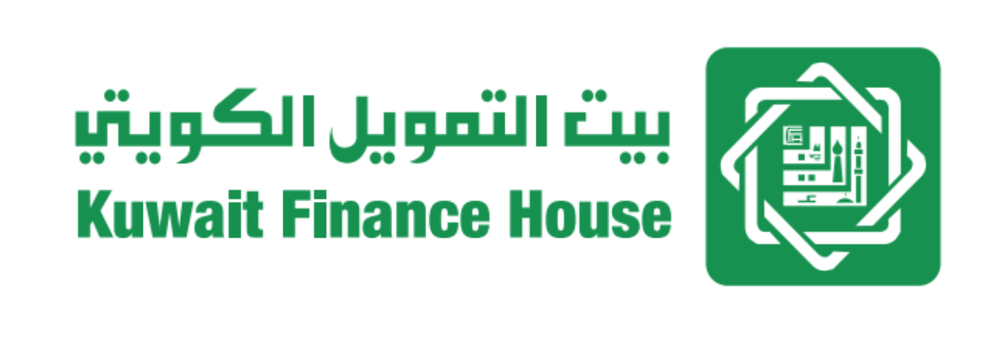Kuwait's Boxit Wants To Offer An on-Demand Personal Storage Solutions The startup noticed a significant gap for a more efficient model to serve the retail customer's personal storage requirements.
Opinions expressed by Entrepreneur contributors are their own.
You're reading Entrepreneur Middle East, an international franchise of Entrepreneur Media.

This article is part of a series on pioneering entrepreneurs in Kuwait that Entrepreneur Middle East has built in collaboration with Kuwait Finance House. Kuwait Finance House is considered a pioneer in Islamic finance or Sharia'a compliant banking, with it being the first Islamic bank established in 1977 in the State of Kuwait, and is today one of the foremost Islamic financial institutions in the world.

Launched in 2015, Boxit Storage is a tech platform providing on-demand personal storage solutions. Started by three founders -CEO Premlal Pullisserry, VP of Operations Abraham Thomas and VP of Sales Joby Matthew- who noticed a significant gap for a more efficient model to serve the retail customer's personal storage requirements, whether it's in the context of moving homes, extra clutter or serving the needs of their respective small enterprise or home business.
"The traditional self-storage model of offering small rooms or lockers for rent at locations either directly within or proximate to dense city centers falls short of satisfying customers that do not want to rent relatively expensive rooms that they can only realistically partially occupy," says Pullisserry, who says that with the Boxit platform, the team packs the items, barcode each box, transport them to the company's secure warehousing facility. With operating offices both in Kuwait and UAE, Pullisserry says Boxit charges users only for the volume of items that their items occupy within the startup's facility.
The co-founder and CEO describes their profit pillars include their proprietary platform, optimally located and fitted warehousing facilities to maximize unit gross profit margins, and referral customers reducing customer acquisition cost significantly.
As for what's next, Pullisserry says they plan to deepen their understanding of their storage needs of prospective users in both B2B and B2C in the region, and optimize their platform/service to deliver an efficient service. With plans to grow in GCC and other proximate geographies with favorable market drivers, Pullisserry says, "We believe there is significant unmet demand for smart storage solutions in the SME and e-tailing sectors and Boxit is optimally positioned to capitalize on this opportunity, especially given our proprietary software/platform."
Excerpt from a conversation with Premlal Pullisserry, co-founder and CEO, Boxit
What has been the most negative feedback on your products/services/business solutions that you have received and how did you go about it?
When we first started we had the naivete of thinking that we could be selective in the items we store by limiting ourselves to only our trademark blue Boxit boxes, i.e. only handling a client's small clutter that could fit in the aforementioned box. The market and its respective customers promptly brought us back to reality by simply not engaging with our service no matter how efficient or cost effective we thought it was. People wanted convenience, and storing their small clutter with us and their larger items with another service provider did not spell convenience. We thankfully quickly realized that the product/market fit was not there and we had to get "there' fast. The solution was to give the customer what they wanted; peace of mind and convenience, with a pricing model that is much more efficient and cost effective for the customer. So that is what Boxit became; store what you want, for however long you need, don't lift a finger to do so, and only pay for exactly what you have utilized in both time and space.
What are some of the main considerations that entrepreneurs should keep when starting up a business in Kuwait and why?
Depending on the nature of the business, establishment processes and required documentation/steps could be more involved and take longer than the entrepreneur's expectation. Secondly, as it relates specifically to limited liability entities which is the most popular form of company used by entrepreneurs in the country, Kuwaiti commercial law does not facilitate the execution of separate shareholder agreements with clauses/provisions allowing for elements such as tag/drag along right, different share classes etc. which is something an entrepreneur may be looking at securing especially if they are building a regional/global platform and will be pursuing venture/institutional funding.
What are some of the opportunities that you see available in the Kuwaiti market today and what would be your advice to aspiring entrepreneurs?
We believe the B2B side of the market is still significantly underserved and on the B2C side I feel there exist significant opportunities for smart entrepreneurs who harness data to carve out a competitive advantage even in more crowded sectors like Food & Beverage. Finally but most importantly I feel a focus on businesses that promote and facilitate sustainability, eg. Recycling, composting, sustainable foods/clothing, green energy, should be and hopefully will prove to be the most successful way forward, not just for Kuwait but the world, especially if we expand our definition of success to include non-monetary elements such as the wellbeing of our respective ecosystems and the planet as a whole, and that is the kind of success we so desperately need at this point.
Related: Kuwait's Tabeeby Wants To Improve Patients' Accessibility To Doctors










